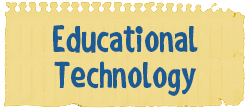ASSESSMENT APPROACHES

There are many approaches to assessing student learning including formal or graded measures of assessment, and more informal, often ungraded, feedback opportunities. A holistic plan of assessment is sustainable, providing formative and summative feedback within the course, and providing learners with the skills to meet their future learning needs. As you develop your assessment strategies for a course consider the following approaches:
Design an Assessment Plan
- Determining Your Purpose for Assessing Student Learning (Tomorrow’s Professor)
- 9 Principles of Good Practice for Assessing Student Learning (American Association for Higher Education)
- Example Handout for Organizing an Assessment Plan (Teaching@Tufts)
- Changing the Ground Rules: Mid-Course Adjustments and Grading (Teaching@Tufts)
Align Assessments with Learning Objectives
It is critical to identify specific and measurable learning objectives to be able to develop effective assessments to measure the student’s knowledge and skill attainment.
- Using Classroom Assessments to Improve Student Learning (Teaching@Tufts)
Make Assessments Sustainable
Sustainable assessment is the approach of building students’ skills in self-assessment. This prepares students to meet their future learning needs by providing them with the skills to make judgments on the quality of their own work and the efficacy of their own process.
- Sustainable Assessment Revisited (Assessment and Evaluation in Higher Education)
- What it Means to be a Self-Regulated Learner (Faculty Focus)
Include both Formative and Summative Feedback
- Formative and Summative Feedback (Teaching@Tufts)
See Also

